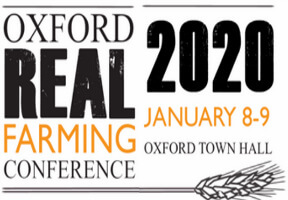Later this week, CCRI’s Chris Short will be attending and presenting at the 11th annual Oxford Real Farming Conference. Taking place in the city on January 8th and 9th, the event offers opportunities to connect with others from across the food and farming sector, hear from experts in the field, and participate in discussions and workshops about how we can meet the challenges of producing good, healthy food in innovative and environmentally sustainable ways.
On Thursday at 1:30 pm, Chris will join with colleagues Julia Alionby (Foundation for Common Land), Jenny Phelps (FWAG-SW) and Chris Giles (Dartmoor National Park) where they will discuss Environmental Land Management Schemes (ELMS) on Common Land. The session will explore how to draw on the best of previous experience to create future schemes where sustainable farming enterprises create nature-rich, culture-rich places. This is pertinent as The Foundation for Common Land’s DEFRA ELMS Test and Trial will start in early 2020 and will be piloting a Commons Proofing Scheme including collating spatial data to create a Commons Health Check and a Toolkit for improving governance.

Regarding the session, Chris Short said “it will be an honour to chair my first session at the ORFC, and on a subject that is so important. The new ELMS programme will be the biggest shake up for farming payments in over a generation. Common land provides many public benefits and is an agricultural area rich in culture and identity for those communities. It is crucial that any new funding programme understands commons and the issues associated with these areas”.
Chris will also be representing the LANDWISE project, a multi-stakeholder project that will evaluate the effectiveness of realistic and scalable land-based NFM measures to reduce the risk from flooding from surface runoff, rivers and groundwater in groundwater-fed lowland catchments. As co-investigator, Chris said “the LANDWISE stand is part of the knowledge exchange component of the project. We want to engage directly with those in the agriculture sector to discuss how we can manage land in order for it to become more resilient in instances of too much, or little rain. There are a number of interactive elements which we hope will add to the discussions, which I am really looking forward to”.
Although the conference has been sold out for some time, you can still follow the two days on the Oxford Real Farming Conference’s Twitter page @ORFC or using the #ORFC20.




